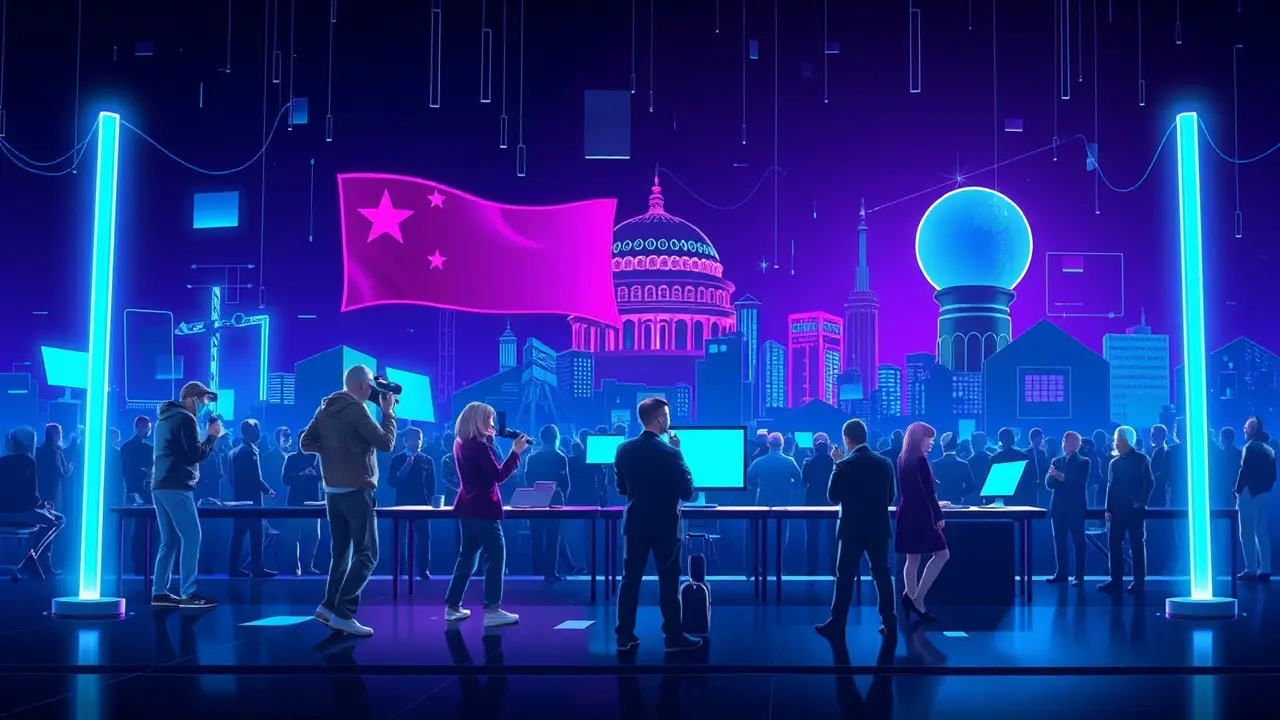- News
- education
- Mark Zuckerberg Opened an Illegal School at His Palo Alto Compound. His Neighbors Revolted

OthereducationSchool Reforms
Mark Zuckerberg Opened an Illegal School at His Palo Alto Compound. His Neighbors Revolted
LA
Laura Bennett
5 hours ago7 min read6 comments
The carefully manicured tranquility of Palo Alto, a neighborhood where privacy is both a prized possession and a fortified commodity, was shattered not by a corporate scandal or a tech launch, but by the sound of children’s laughter and the relentless hum of minivans. At the center of this unexpected suburban revolt was Mark Zuckerberg, a figure more accustomed to navigating the virtual frontiers of the metaverse than the zoning laws of his own backyard.The conflict began subtly, as these things often do, with the quiet grievances that fester over trimmed hedges and property lines. Neighbors started noticing things: an unusual frequency of unfamiliar vehicles, a small army of security personnel that seemed to grow with each passing week, and a constant, low-level buzz of activity emanating from the Zuckerberg compound that felt out of sync with the area’s hushed, dignified rhythm.The complaints were initially murmured over coffee or texted in hushed neighborhood group chats—concerns about noise pollution, the disquieting presence of extra guards, and the sheer volume of traffic transforming their serene streets into a chaotic thoroughfare. But it was the revelation of the ‘Beast Academy’ that tipped the scales from quiet discontent to open rebellion.This wasn't just a private tutoring session or a playdate; it was a full-fledged, albeit unlicensed, educational institution operating from the heart of a residential sanctuary, whimsically named after the family’s pet chicken, Beast. This detail, so personal and almost charmingly eccentric, contrasted sharply with the bureaucratic reality of its illegality, creating a fascinating psychological rift.On one hand, you have the human desire to provide a unique, intimate learning environment for one's children, a story any parent can empathize with. On the other, you have the stark imposition of that personal decision onto a community that never consented to host a school, a classic tale of privilege bypassing the shared rules that bind a society together.The neighbors, in their revolt, were not just protesting traffic; they were defending a social contract. They were pushing back against the notion that immense wealth and influence can create a bubble of exception, a sovereign territory where local ordinances simply do not apply.This incident opens a window into the modern dynamics of extreme affluence and community integration. What does it mean when a single homeowner’s personal choices—however well-intentioned—fundamentally alter the character and functionality of a shared space? The Zuckerberg compound became a microcosm of a larger, ongoing societal conversation about the power of the ultra-wealthy to shape their immediate physical world as readily as they shape digital landscapes.There were no malicious actors here, perhaps, but a profound disconnect. The family sought a bespoke solution for their children's education, an extension of the control they exert in their professional lives, while the neighbors were clinging to the predictable, regulated peace they had invested in.The ‘Beast Academy’ scandal, therefore, is less about a school and more about jurisdiction, both legal and social. It asks us who gets to decide the rules of a community and what happens when personal freedom collides with collective well-being in the most intimate of settings: home.
#featured
#Mark Zuckerberg
#illegal school
#Palo Alto
#neighbor complaints
#zoning violation
#pet chicken
Stay Informed. Act Smarter.
Get weekly highlights, major headlines, and expert insights — then put your knowledge to work in our live prediction markets.
Related News
© 2025 Outpoll Service LTD. All rights reserved.













